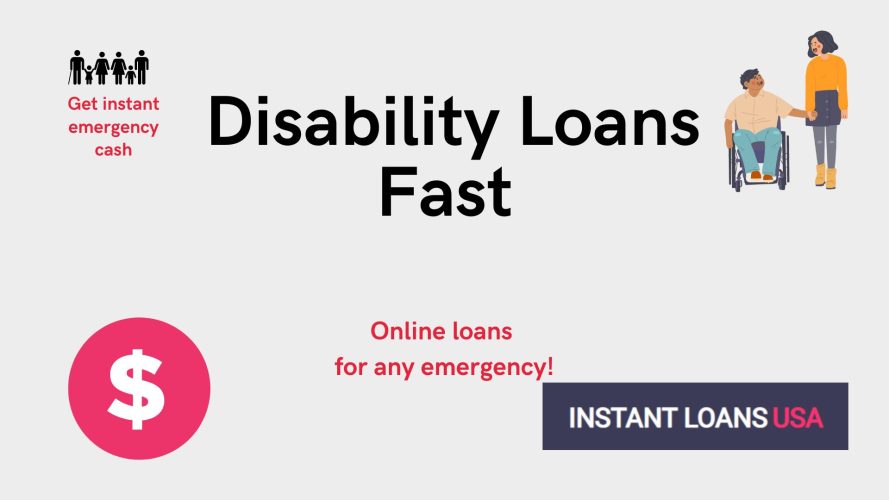Instant Cash Online – Bad Credit Payday Loans in NJ
Online Payday Loans for bad credit are short-term small-dollar cash advance suitable for any personal needs and available for both good and bad credit borrowers.
The availability and regulation of payday loans vary by state, and borrowers should be aware of the laws and regulations in their state before taking out a payday loan. In New Jersey, payday loans are available but with some restrictions, and are regulated by the Consumer Loan Act, as well as other statutes. Borrowers in New Jersey may want to consider other options for borrowing money, and to carefully consider the costs and risks associated with payday loans before taking one out.
New Jersey Payday Loans: Online Application Process
The online application process for a payday loan may vary by lender, but generally includes the following steps:
- Research lenders: Look for reputable lenders that offer online payday loans. Check their eligibility requirements, fees, and interest rates to find a lender that fits your needs.
- Fill out the application: Go to the lender’s website and fill out the online application form. You will need to provide personal and financial information, such as your name, address, phone number, social security number, employment information, and bank account information.
- Provide documentation: Some lenders may require additional documentation, such as a pay stub or bank statement, to verify your income and eligibility.
- Review the loan terms: Once your application is complete, the lender will provide you with a loan contract that outlines the loan terms and conditions, including the loan amount, interest rate, fees, and repayment period. Carefully review the contract and make sure you understand the terms before signing it.
- Sign the contract: If you agree to the loan terms, sign the contract electronically or by printing it out and signing it by hand.
- Receive the funds: Once you’ve signed the contract, the lender will deposit the loan funds into your bank account, often within one business day.
- Repay the loan: Repay the loan according to the terms outlined in the loan contract. Some lenders may allow you to make payments online or through an automatic debit from your bank account.
It’s important to carefully review the lender’s terms and conditions before agreeing to a payday loan, and to only borrow what you can afford to repay.
New Jersey Payday Loan Laws and Regulations
| Legal Status | It shows whether the service is legal, available with some restrictions or prohibited by the state’s laws and regulations. | Available (with some restrictions) |
|---|---|---|
| Regulator | State official document, act, or statute that regulates payday lending | Consumer loan act, N.J. Stat. Ann. tit. 17, 1 et seq., N.J. Stat. Ann. 2C: 21-19., and N.J. Stat. Ann. 17:15A-47. |
| Max APR | Maximum interest charged for borrowing that shows the yearly cost of the loan as percentage | 30.00% |
| Collateral | The need to provide any kind of collateral to apply for a loan | None, unsecured |
| Turnaround Time | The time it takes for the loan to reach your account | 1 business day |
In New Jersey, payday loans are available but with some restrictions. Payday lenders are regulated by the Consumer Loan Act, as well as other statutes, including N.J. Stat. Ann. tit. 17, 1 et seq., N.J. Stat. Ann. 2C: 21-19., and N.J. Stat. Ann. 17:15A-47. The maximum annual percentage rate (APR) that lenders can charge in New Jersey is 30.00%, which is significantly lower than the rates charged in many other states.
Borrowers are not required to provide collateral to secure the loan, as it is unsecured. The turnaround time for receiving the loan is typically one business day. It’s important to carefully consider the costs and risks associated with payday loans, as they can still be expensive and lead to a cycle of debt if not used responsibly. Borrowers in New Jersey may want to explore other options for borrowing money, such as personal loans, credit cards, or assistance programs offered by community organizations.
Eligibility Criteria for a Payday Loan in New Jersey
The eligibility criteria for a payday loan may vary by lender and state, but here are some general requirements that borrowers must typically meet:
- Age: Borrowers must be at least 18 years old to apply for a payday loan.
- Identification: Borrowers must provide a valid government-issued ID, such as a driver’s license or passport.
- Income: Borrowers must have a steady source of income, such as a job, and may be required to provide proof of income, such as a pay stub or bank statement.
- Bank account: Borrowers must have an active checking account in good standing, as the loan will typically be deposited directly into the account and repayments will be made through the account.
- Residency: Borrowers must be a resident of the state where the loan is being offered.
In addition to these general requirements, some lenders may also require a minimum credit score or have additional eligibility criteria. It’s important to carefully review the lender’s requirements before applying for a loan to ensure that you meet the eligibility criteria.
Compare Loans Available in New Jersey at Instant Loans USA
Benefits of Payday Loans in New Jersey
Payday loans can offer several benefits to borrowers who need quick access to cash to cover unexpected expenses. Here are some potential benefits of payday loans:
- Quick access to funds: Payday loans are designed to provide borrowers with fast access to cash, often within one business day.
- No collateral required: Unlike some other types of loans, payday loans are unsecured, which means borrowers don’t have to put up collateral such as a car or house to secure the loan.
- Easy application process: Applying for a payday loan is typically a quick and easy process that can be done online or in person at a payday loan store.
- Credit score may not be a factor: Payday lenders typically don’t require a minimum credit score to be eligible for a loan, which can be helpful for borrowers who have poor credit.
- Flexibility: Payday loans can be used for a variety of purposes, such as covering unexpected expenses or making ends meet until the next paycheck.
However, it’s important to carefully consider the costs and risks associated with payday loans before borrowing. High interest rates and fees can make payday loans an expensive form of borrowing, and can lead to a cycle of debt if not used responsibly. It’s important to only borrow what you can afford to repay, and to explore other options for borrowing money if possible.
The Bottom Line
In conclusion, while payday loans are technically illegal in New Jersey, there may be lenders that operate with restrictions or loopholes. However, it’s important to carefully consider the costs and risks associated with payday loans before borrowing. Borrowers should explore other options for borrowing money and consider responsible borrowing practices, such as only borrowing what you can afford to repay, shopping around for the best rates and terms, and communicating with your lender if you’re having difficulty making payments. By taking these steps, borrowers in New Jersey can make informed decisions about borrowing money and avoid falling into debt and financial difficulties.



